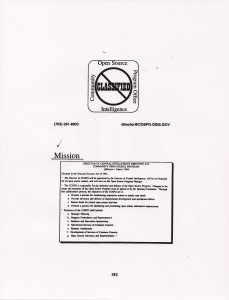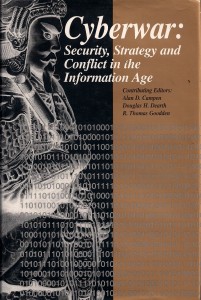
“CREATING A SMART NATION: Strategy, Policy, Intelligence, & Information,” pp. 77-90.

The truth at any cost lowers all other costs — curated by former US spy Robert David Steele.
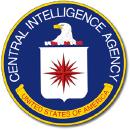
The Brown Commission and the Future of Intelligence
A Roundtable Discussion
On 1 March 1996, the Commission on the Roles and Capabilities of the United States Intelligence Community (the Brown Commission) issued its report to the President and to Congress. On 26 March, Studies in Intelligence board members Brian Latell, Robert Herd, John Wiant, and Bill Nolte met at the Commission's offices in the New Executive Office Building with Ann Z. Caracristi, a member of the Commission; Staff Director L. Britt Snider; and staff members Douglas Horner, Brendan Melley, Kevin Scheid, and William Kvetkas. What follows is an edited transcript of the discussion with them, reviewed in advance by the participants.
Continue reading “Reference (1996): The Brown Commission and the Future of Intelligence”
As Presented:
OSS1997-03-03 Secrecy Primer Moynihan Commission
The protection of “sources & methods” is a political gambit, not a legitimate claim for immunity. This testimony to the Moynihan Commission on Secrecy lays out the hypocricy in detail.
See Also:
1992 E3i: Ethics, Ecology, Evolution, & intelligence
RELATED:
Worth a Look: Books on Government Secrecy

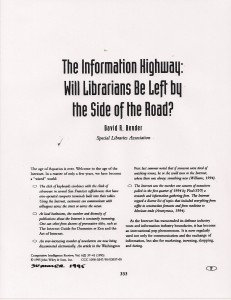
In 1986, Project GEORGE (Smiley) in the CIA's Office of Information Technology discovered that computers had been designed without ever talking to librarians. There were created as unstructured bit buckets. It turns out that in the analog period, structure and the Dewey decimal system and humanly-constructed taxonomies were vitally important if one was to archive and retrieve knowledge within the limits of the individual human. During the middle period, which is STILL IN PROGRESS, computers have failed to get a grip on unstructured information. As Stephen E. Arnold and others have documented, electronic search yields less than 10% of what is online (apart from deep web not covered by any of the 75 search engines, there are C drives and peripheral drives that have not been indexed). Although David Weinberg is correct in his book Everything is Miscellaneous, and the digital world opens the propect for infinitely sharing information while retaining the original, and for creating infinite wealth by eliminating information asymmetries and data pathologies that favor the few at the expense of the many, there is no single government, corporation, organization, or collective other than Earth Intelligence Network and its affiliated society, Phi Beta Iota, that is actually committed to realizing the full potential of humans as H. G. Wells, Pierre Tielhard de Chardin, Stewart Brand, Kevin Kelly, and others have envisioned: as the World Brain within Earth Game, all humans, all minds, all the time. See the 2009 article on Human Intelligence by clicking on the icon below.
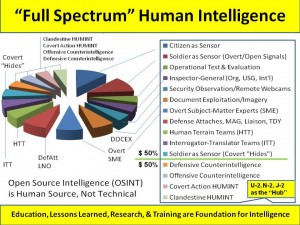

Mats Bjore, along with Arno Reuser, Steve Edwards, Joe Markowitz, is one of a tiny handful of “originals” who have striven to create the discipline of Open Source Intelligence (OSINT) that has now morphed into M4IS2 (Multinational, Multiagency, Multidisciplinary, Multidomain Information-Sharing and Sense-Making). Collective Intelligence, Cognitive Science, and Civil Affairs as well as Civil Society are all congregating outside of government “control.”
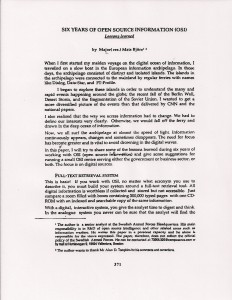

2006 PLATINUM LIFETIME AWARD Dr. Joseph Markowitz
Dr. Joseph Markowitz is without question the most qualified Open Source Intelligence (OSINT) pioneer in the ranks of those presently in or retired from U.S. government service. As the only real chief of the Community Open Source Program Office (COSPO) he tried valiently to nurture a program being systematically undermined by both the leadership and the traditional broadcast monitoring service. When he moved on to advise the Defense Science Board, he served America well by helping them fully integrate the need for both defense open source information collection and exploitation, and defense information sharing with non-governmental organizations. His persistent yet diplomatic efforts merit our greatest regard. 